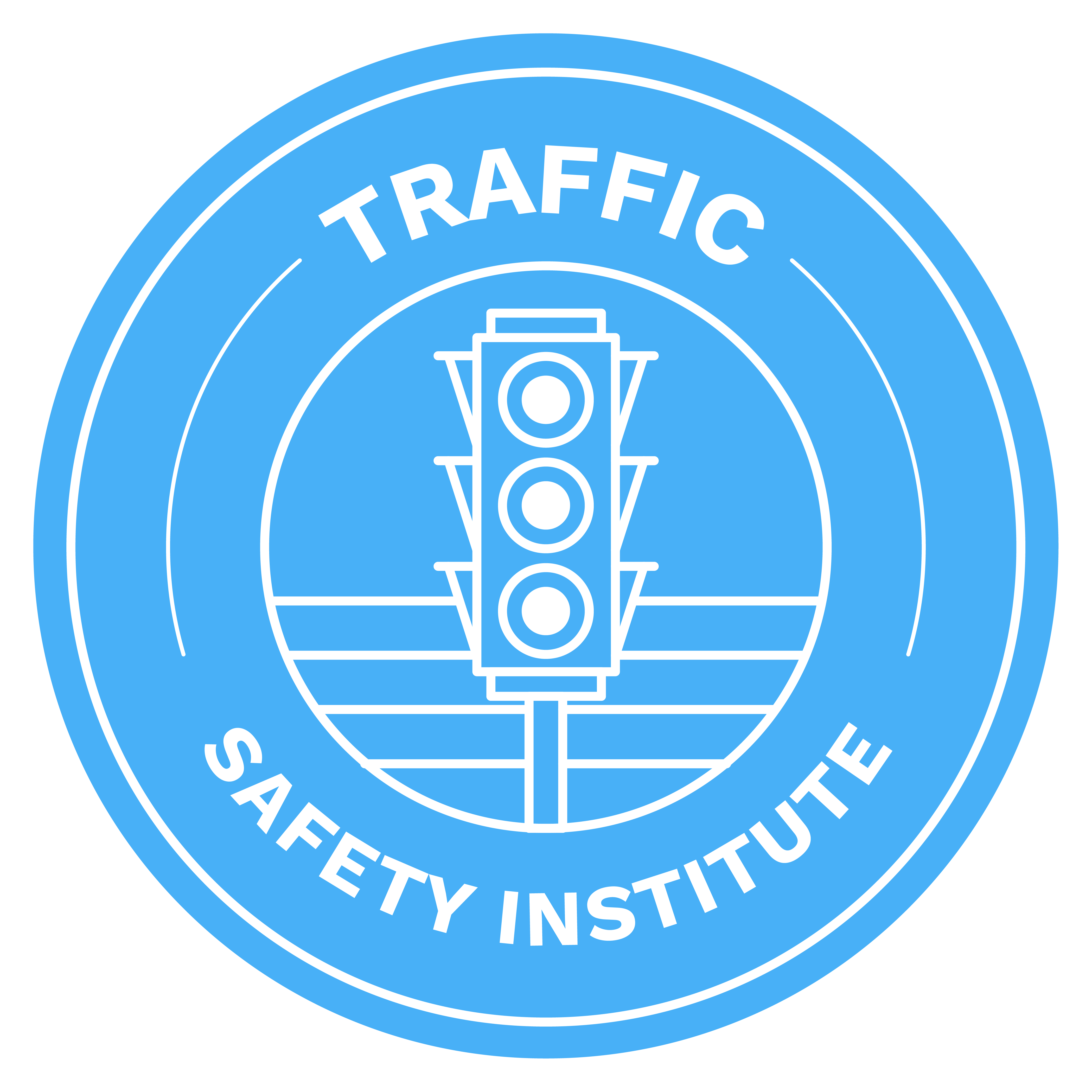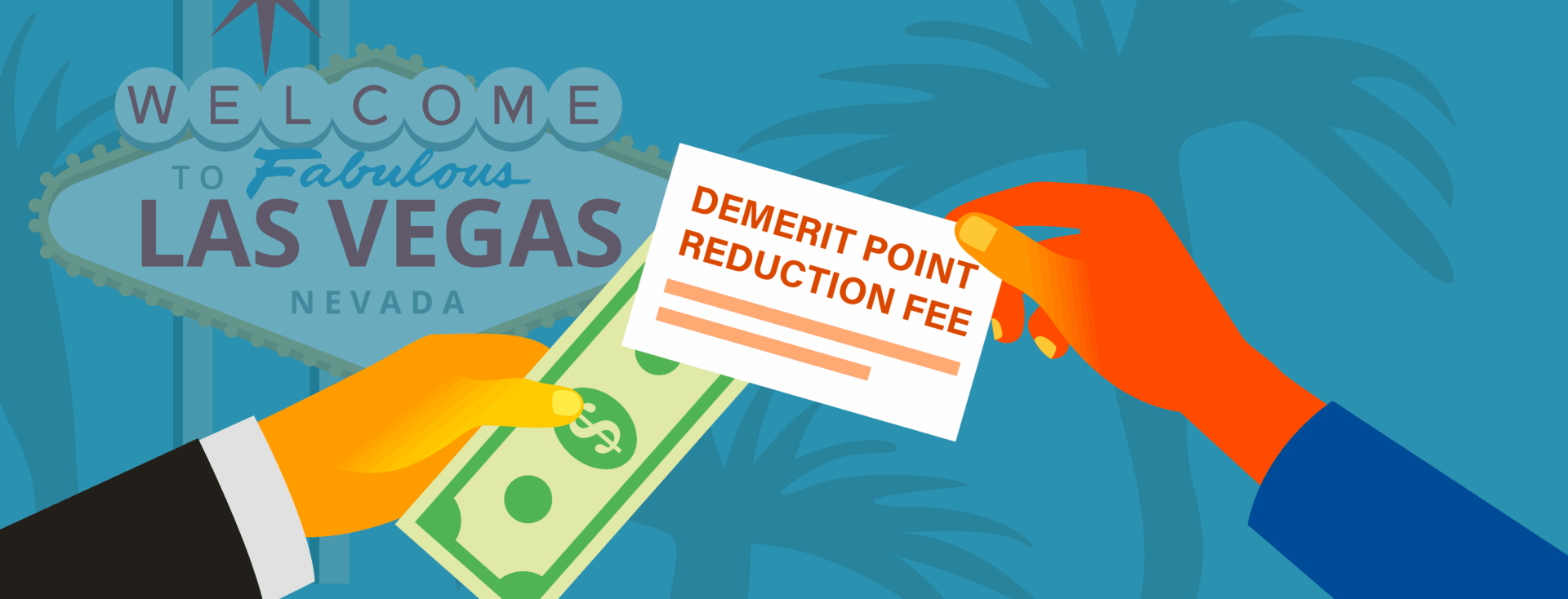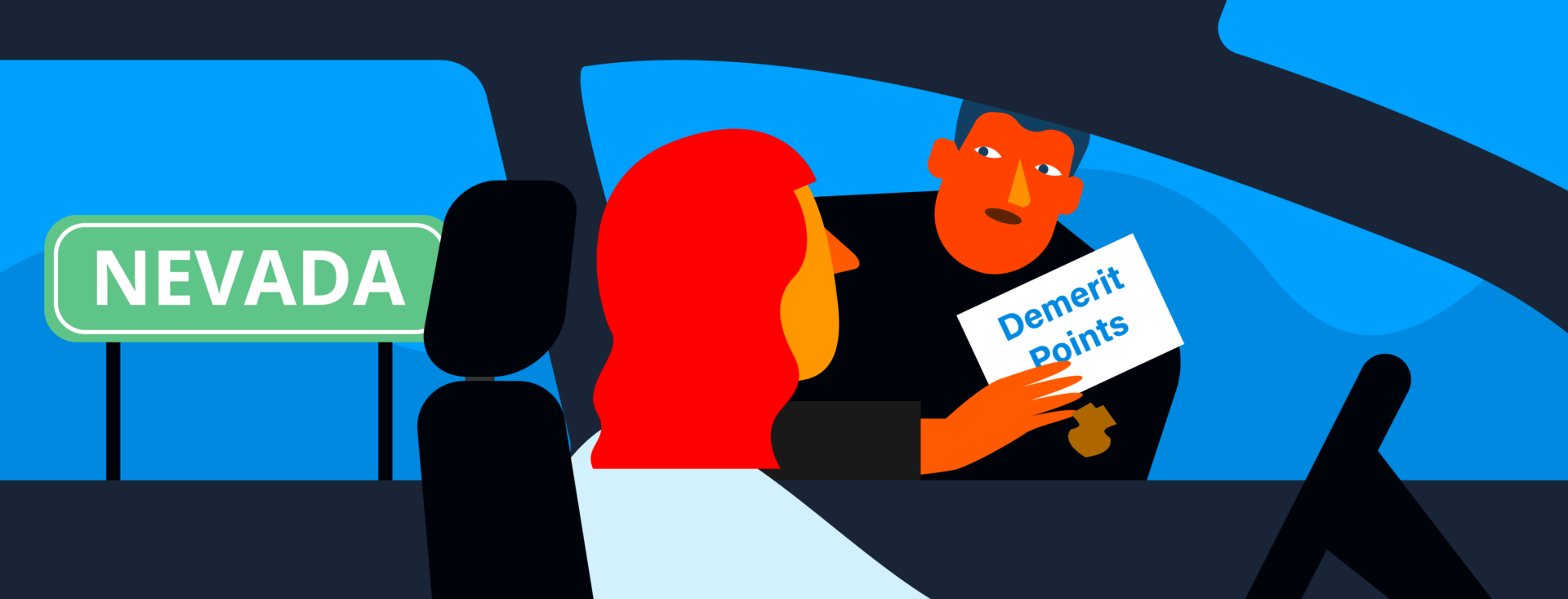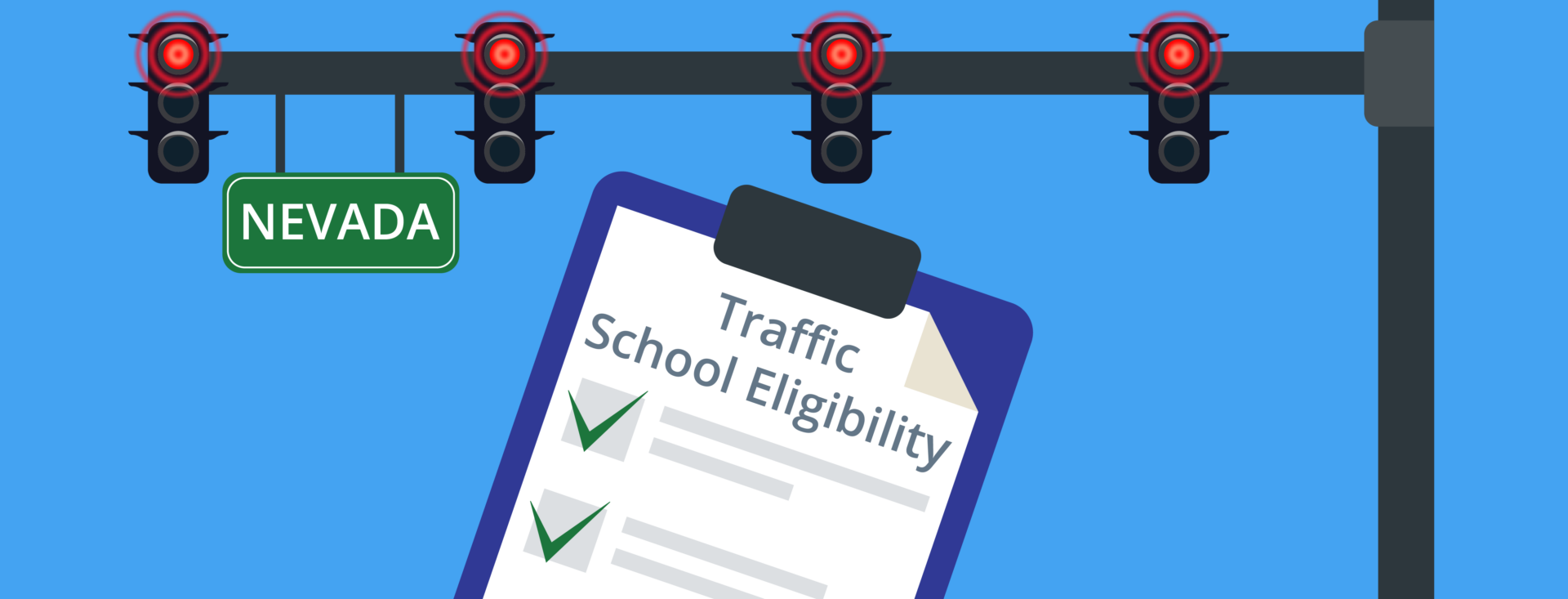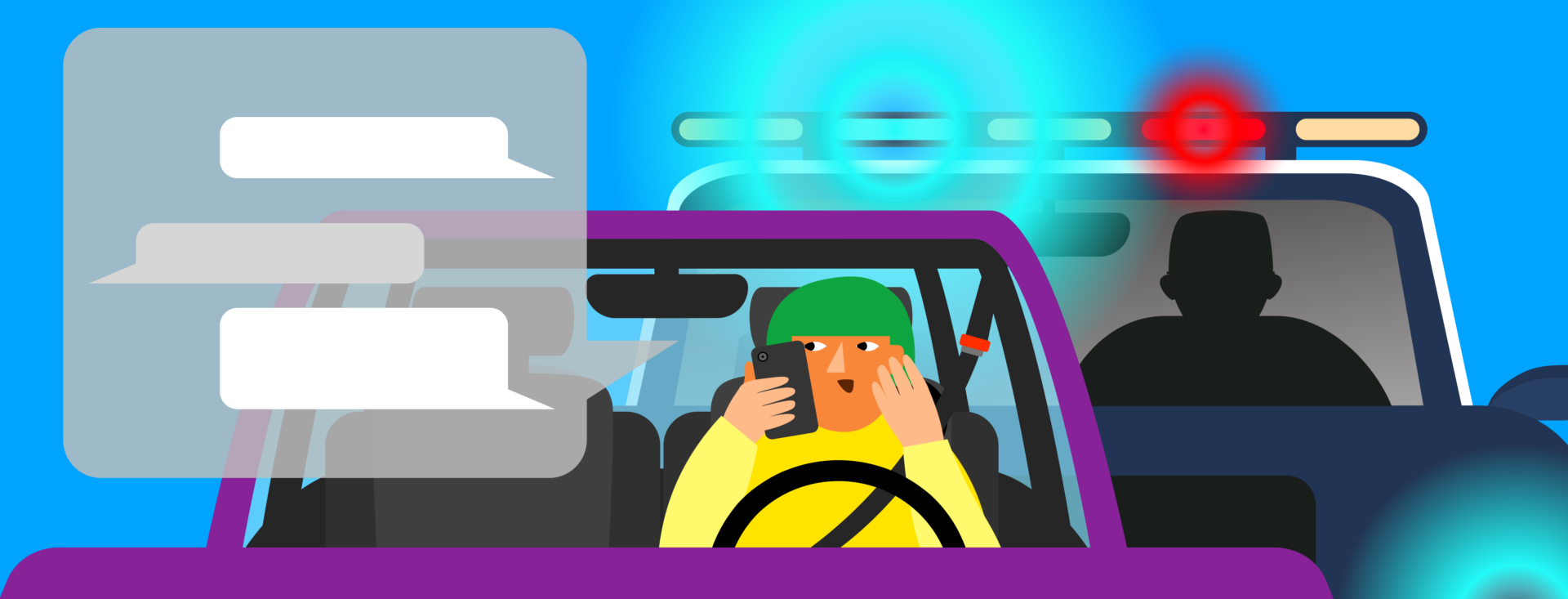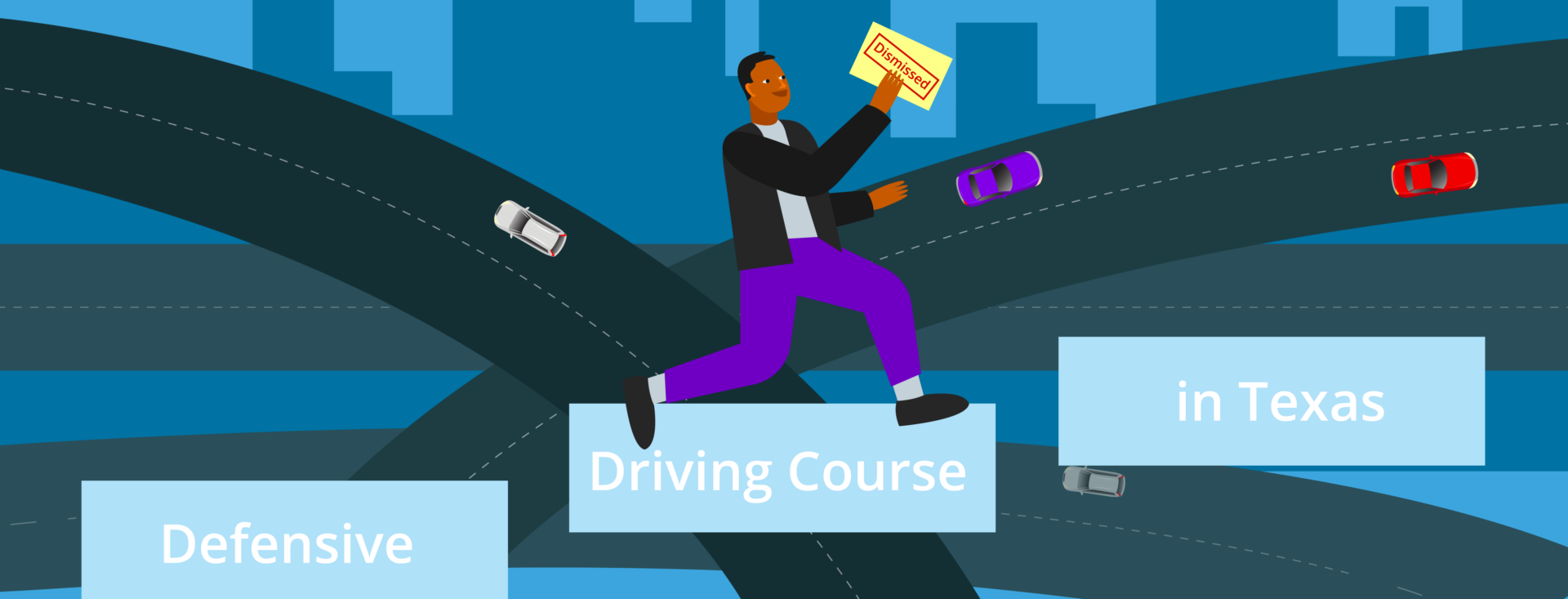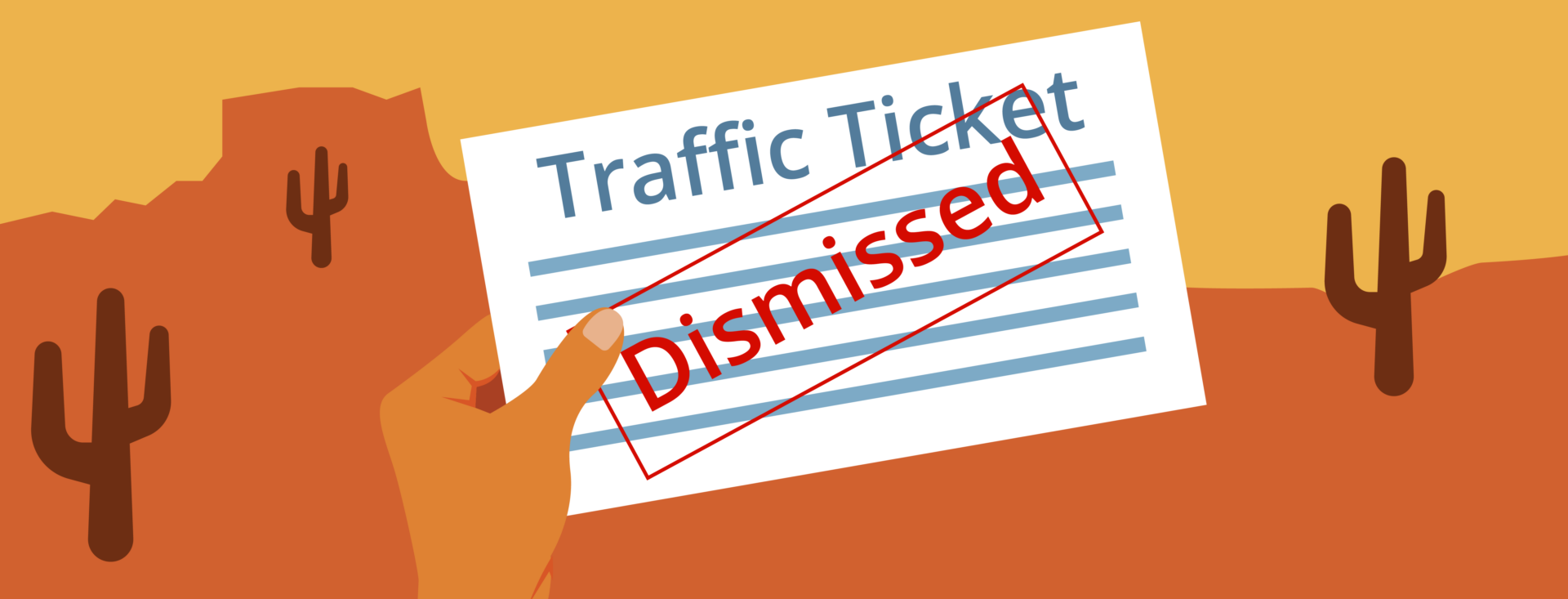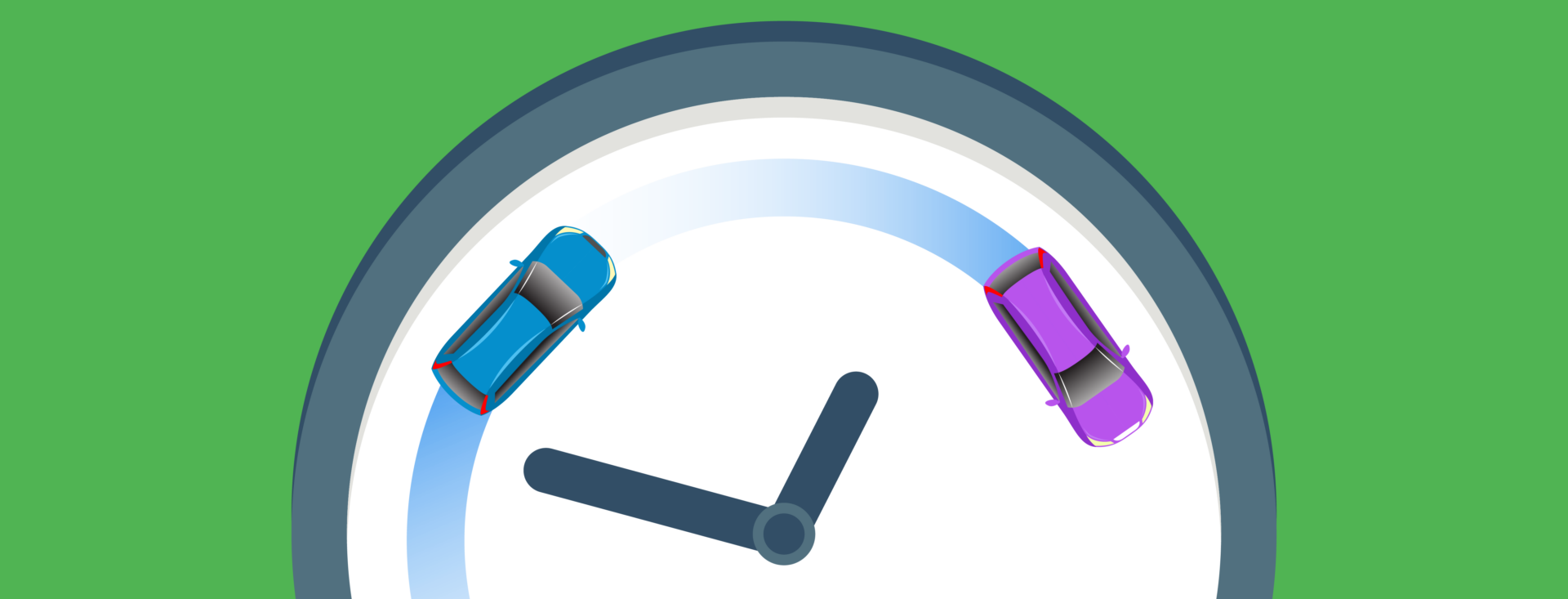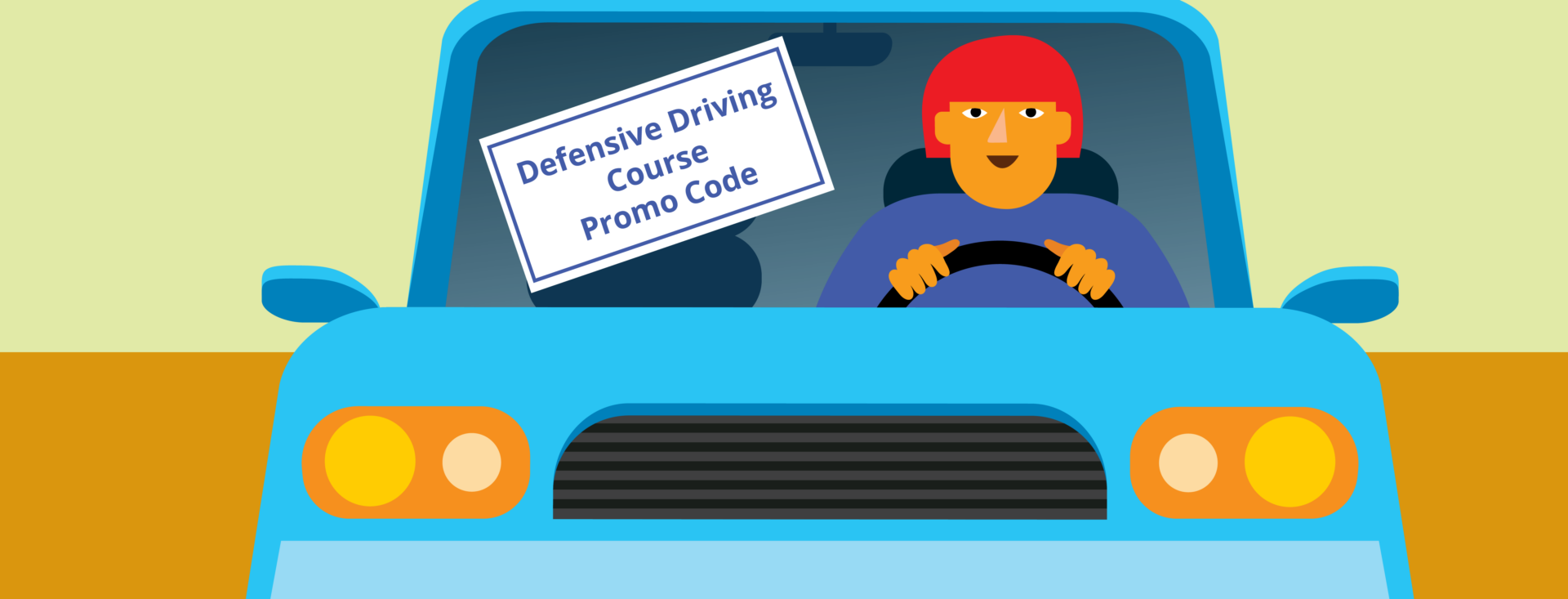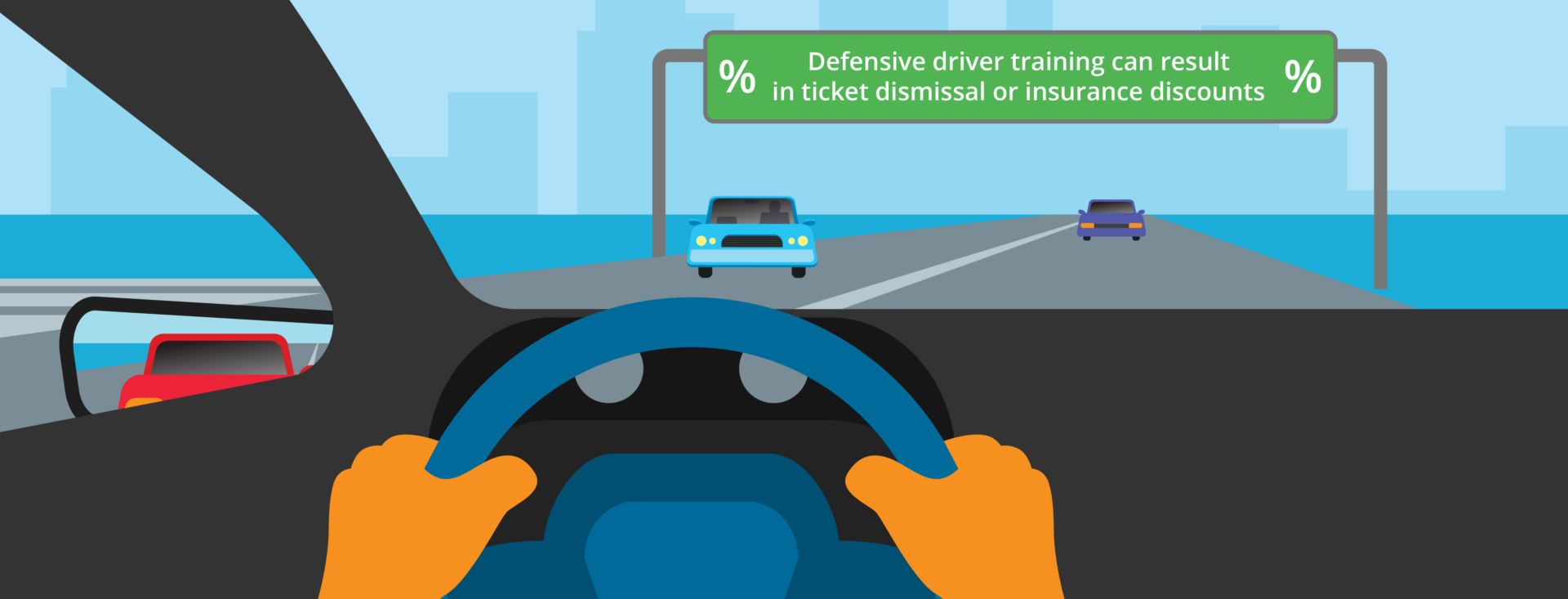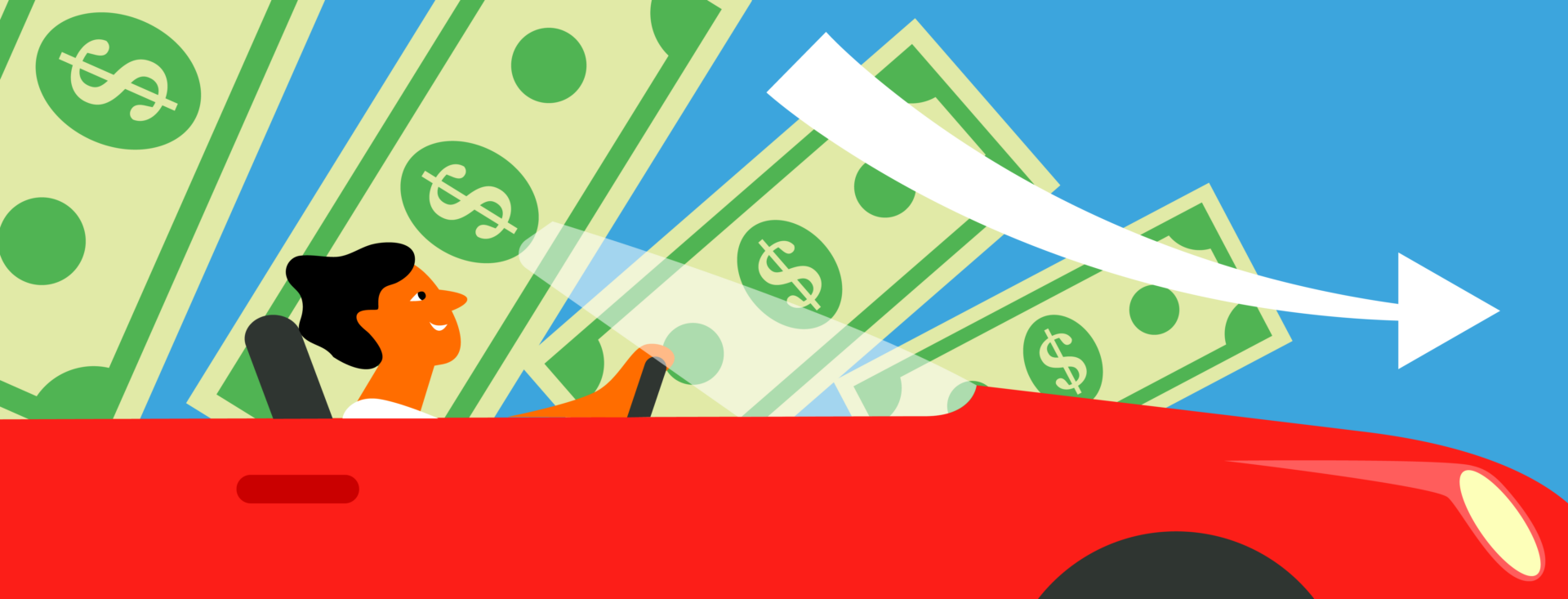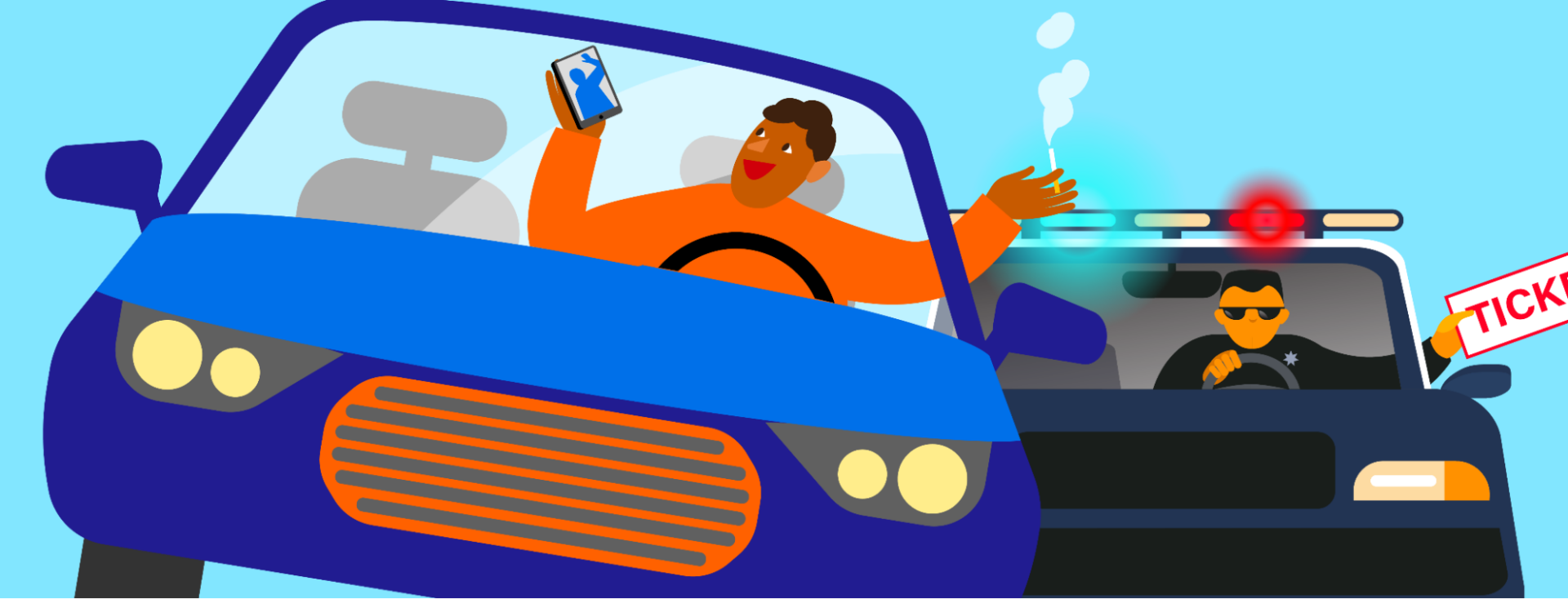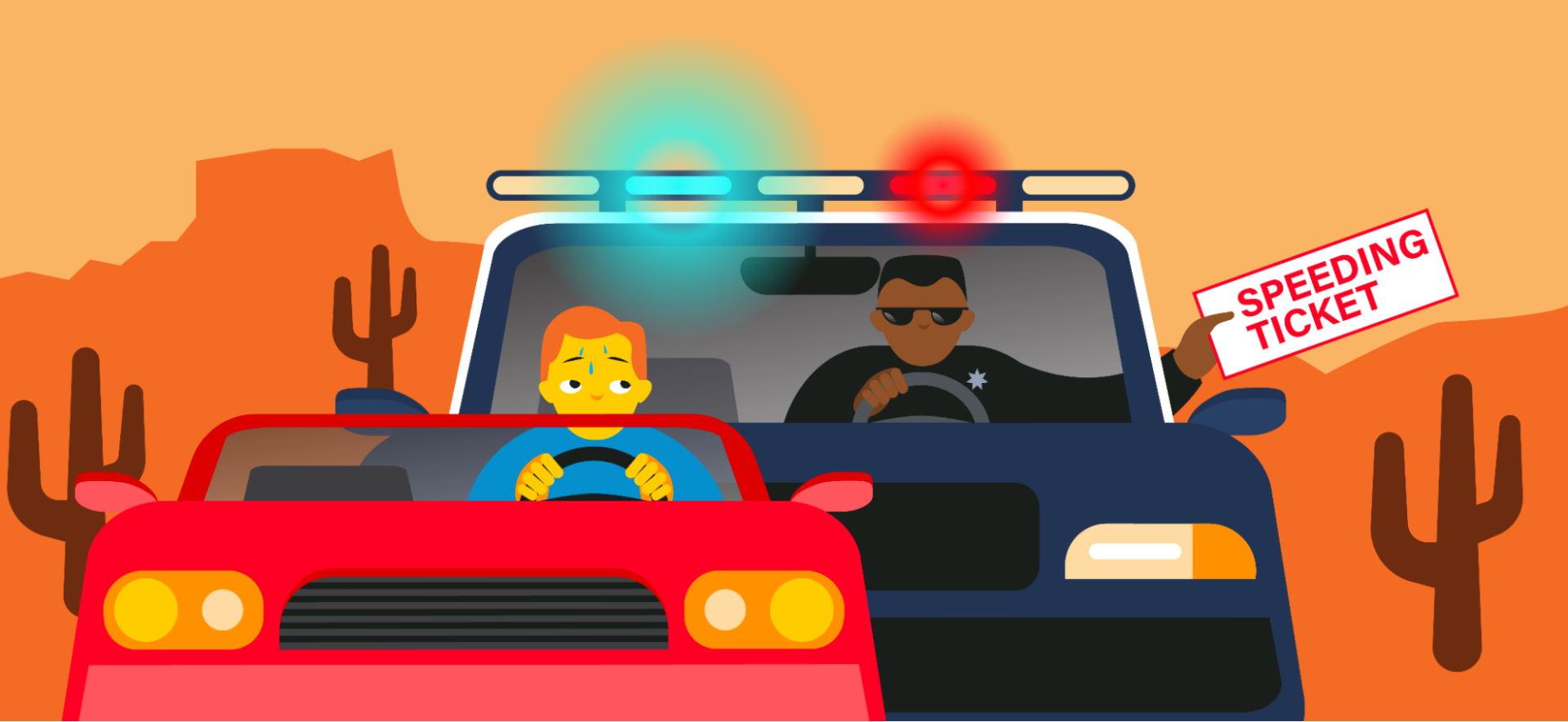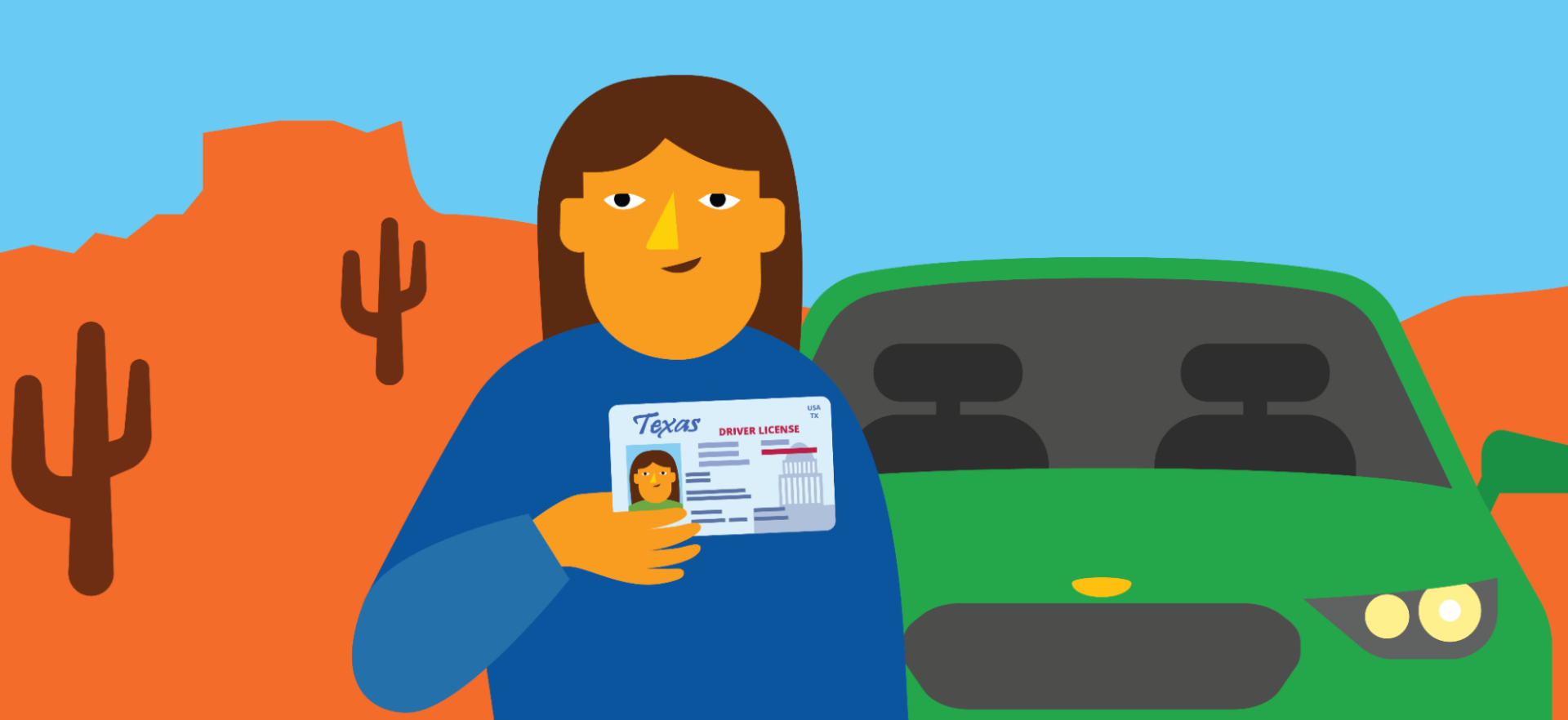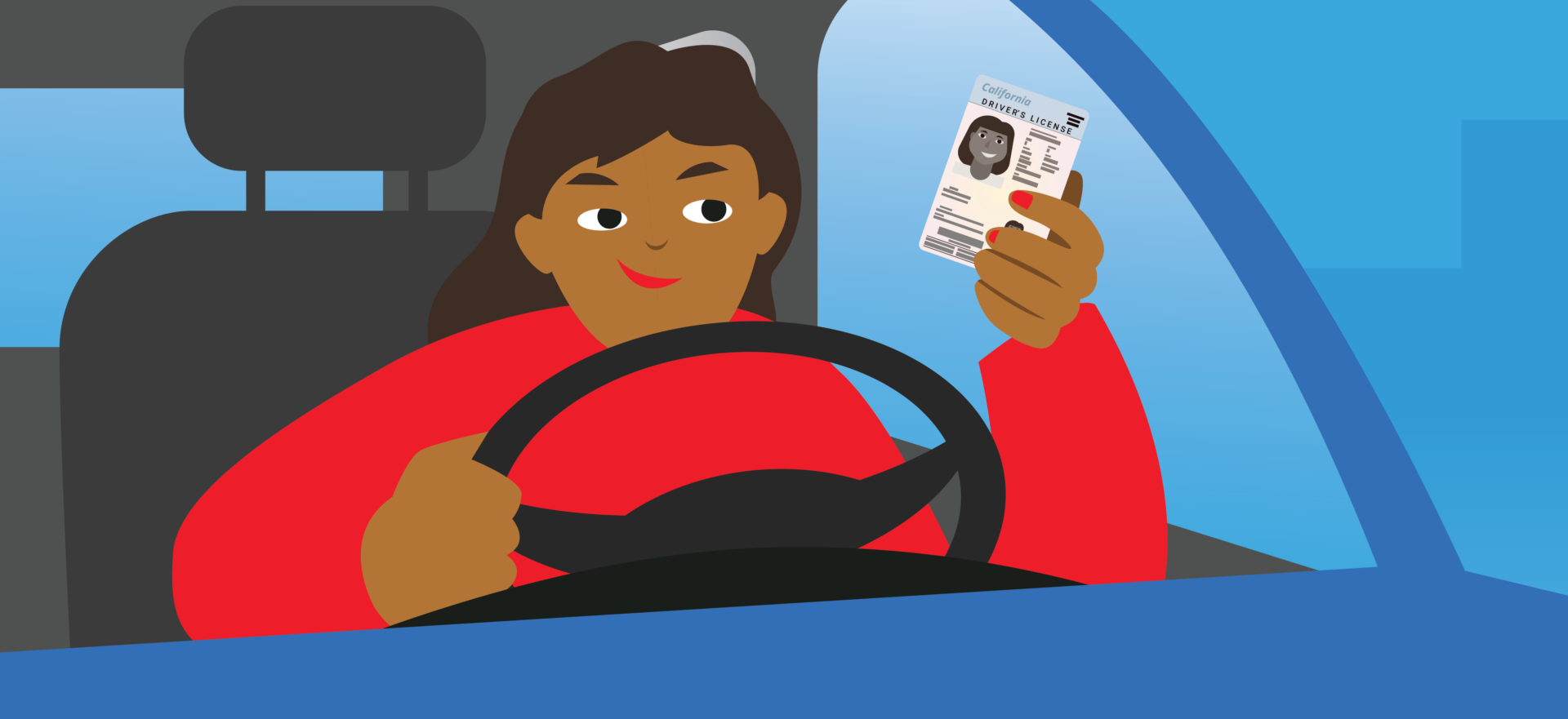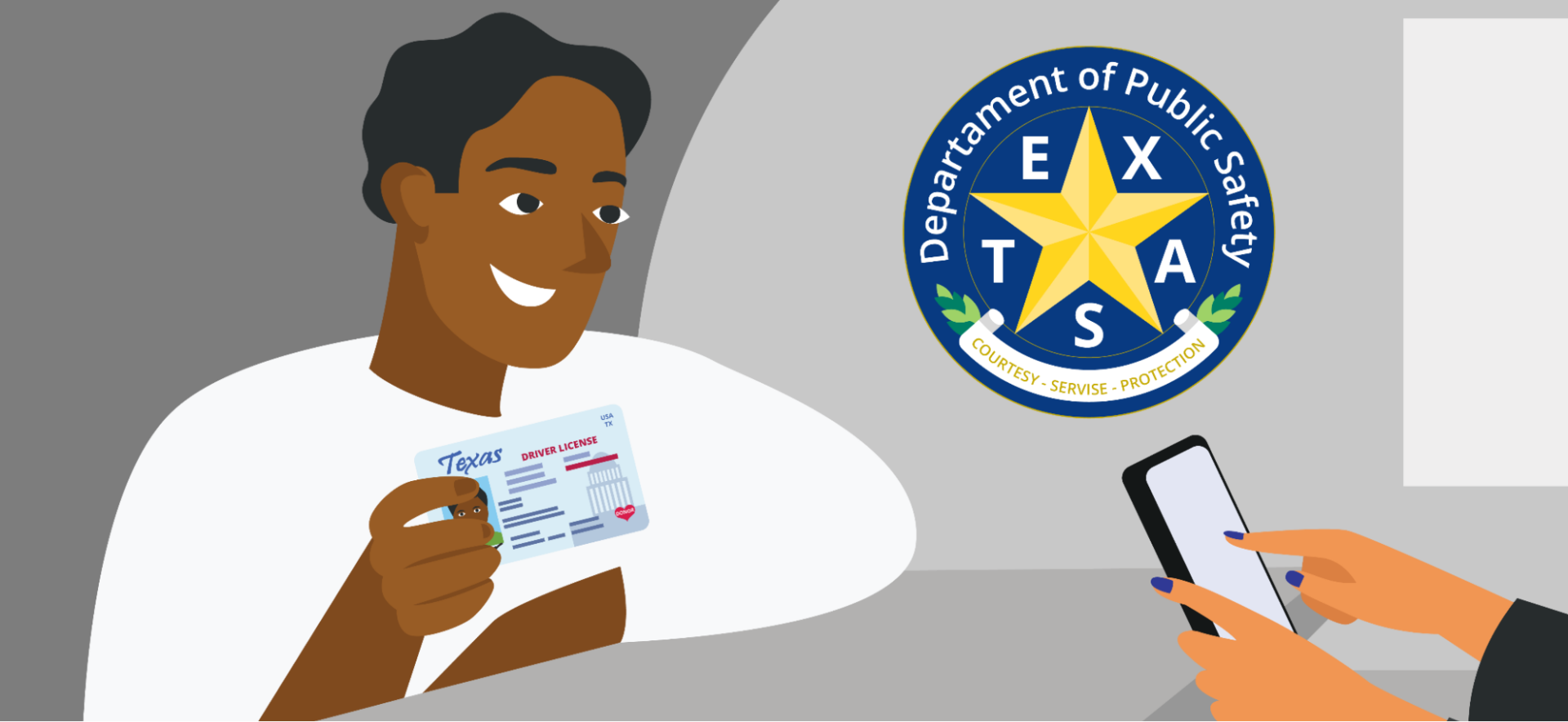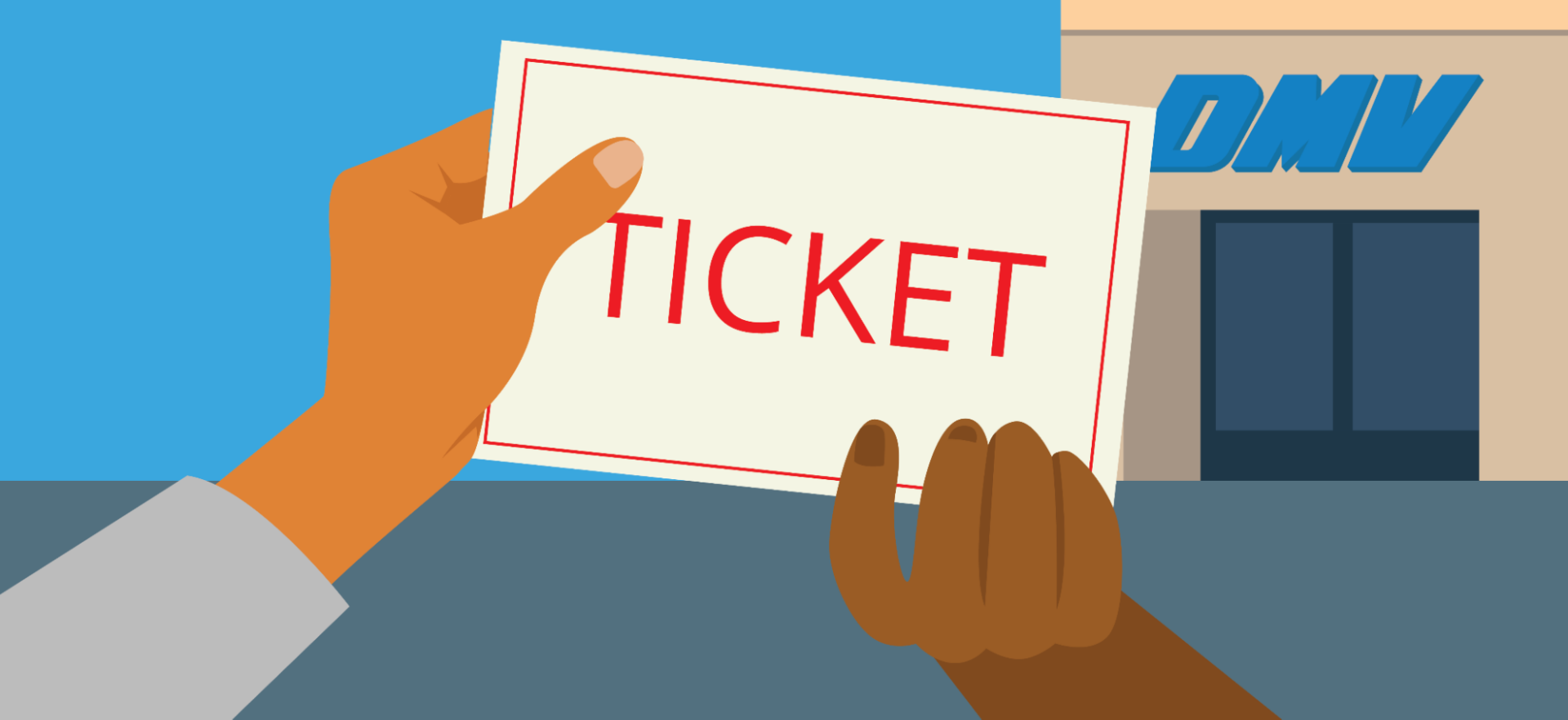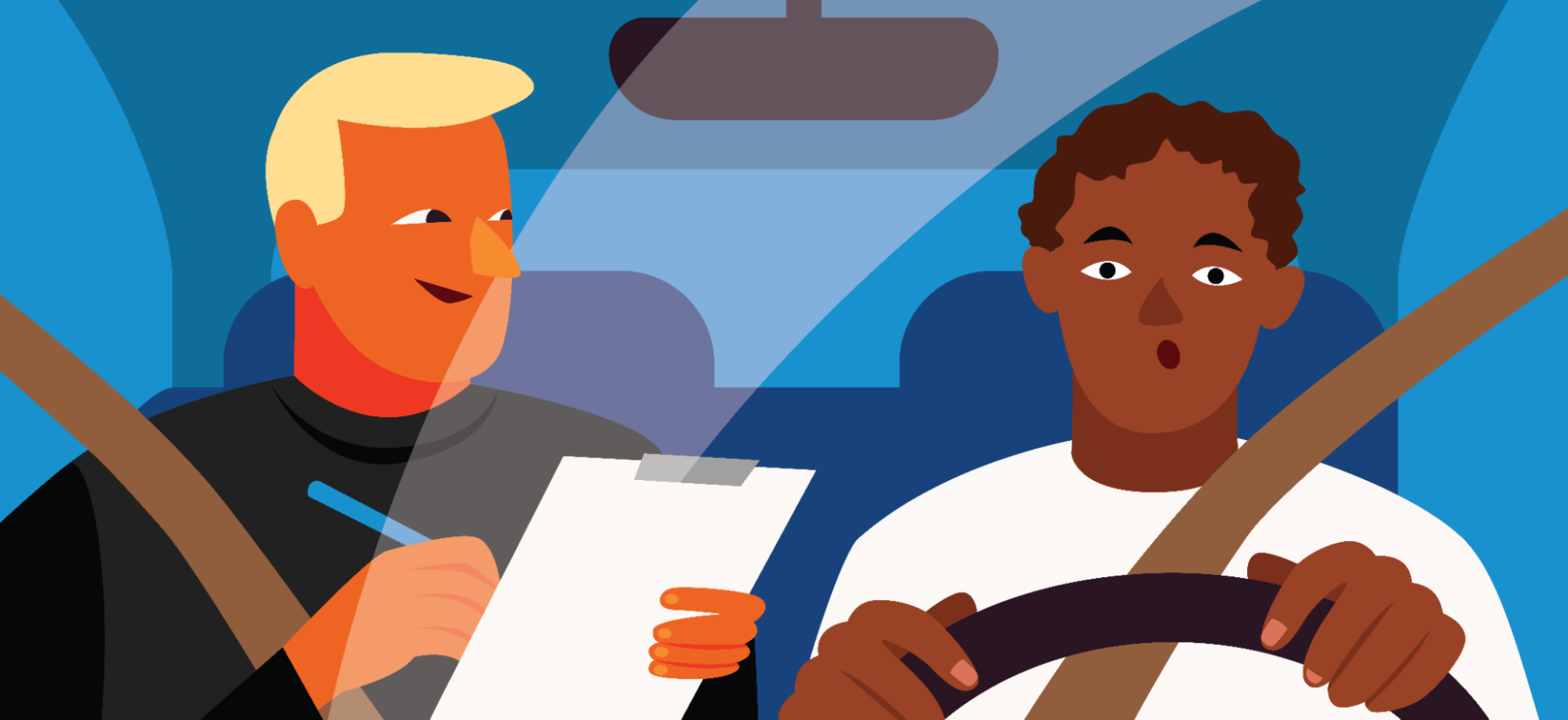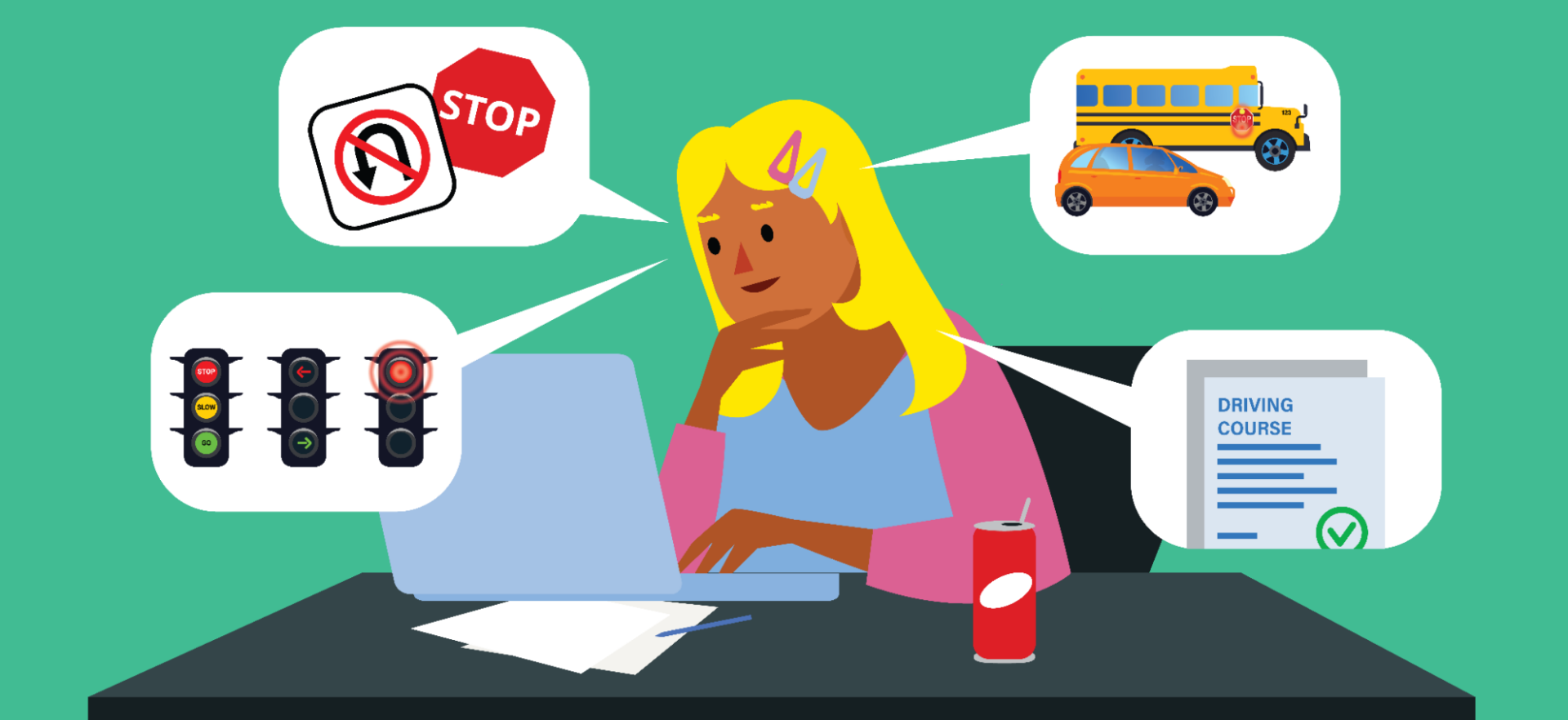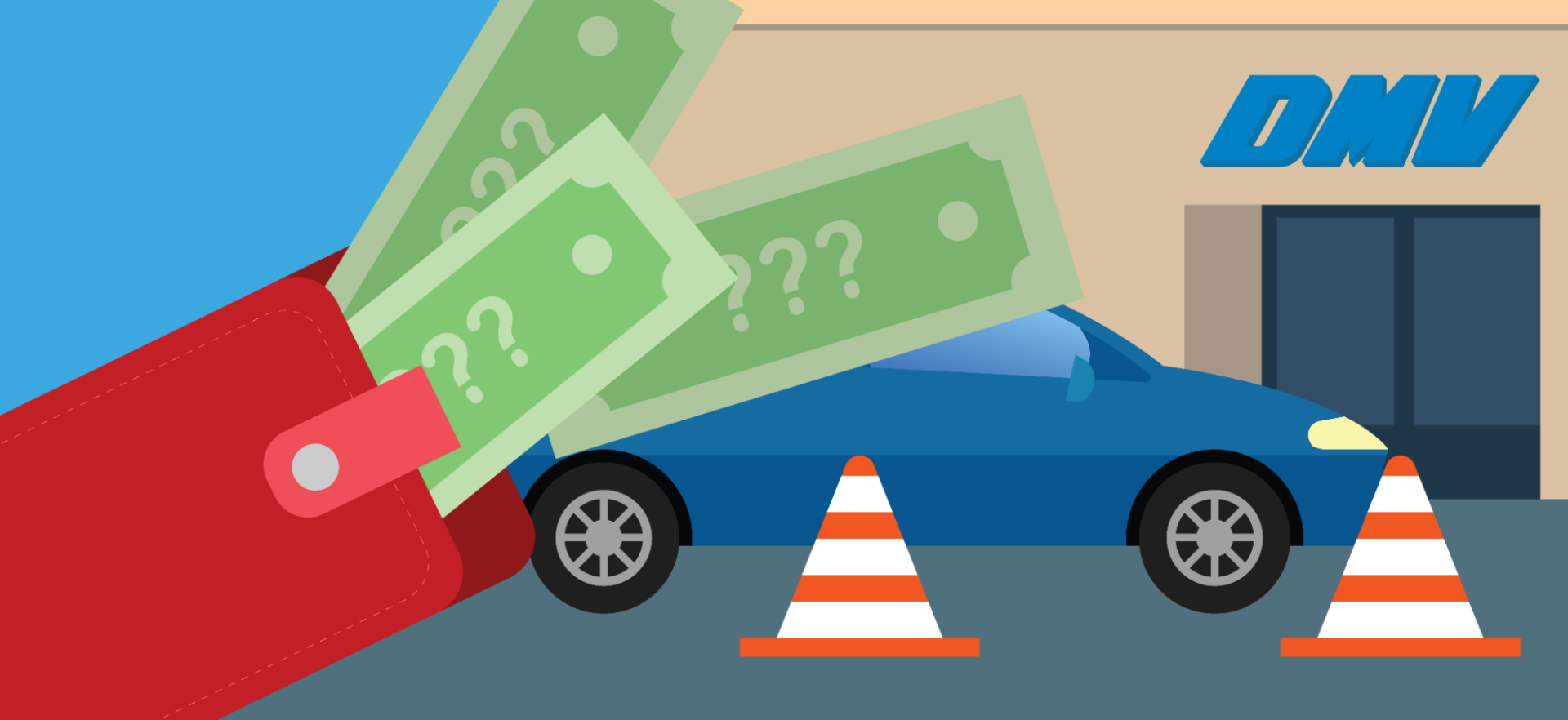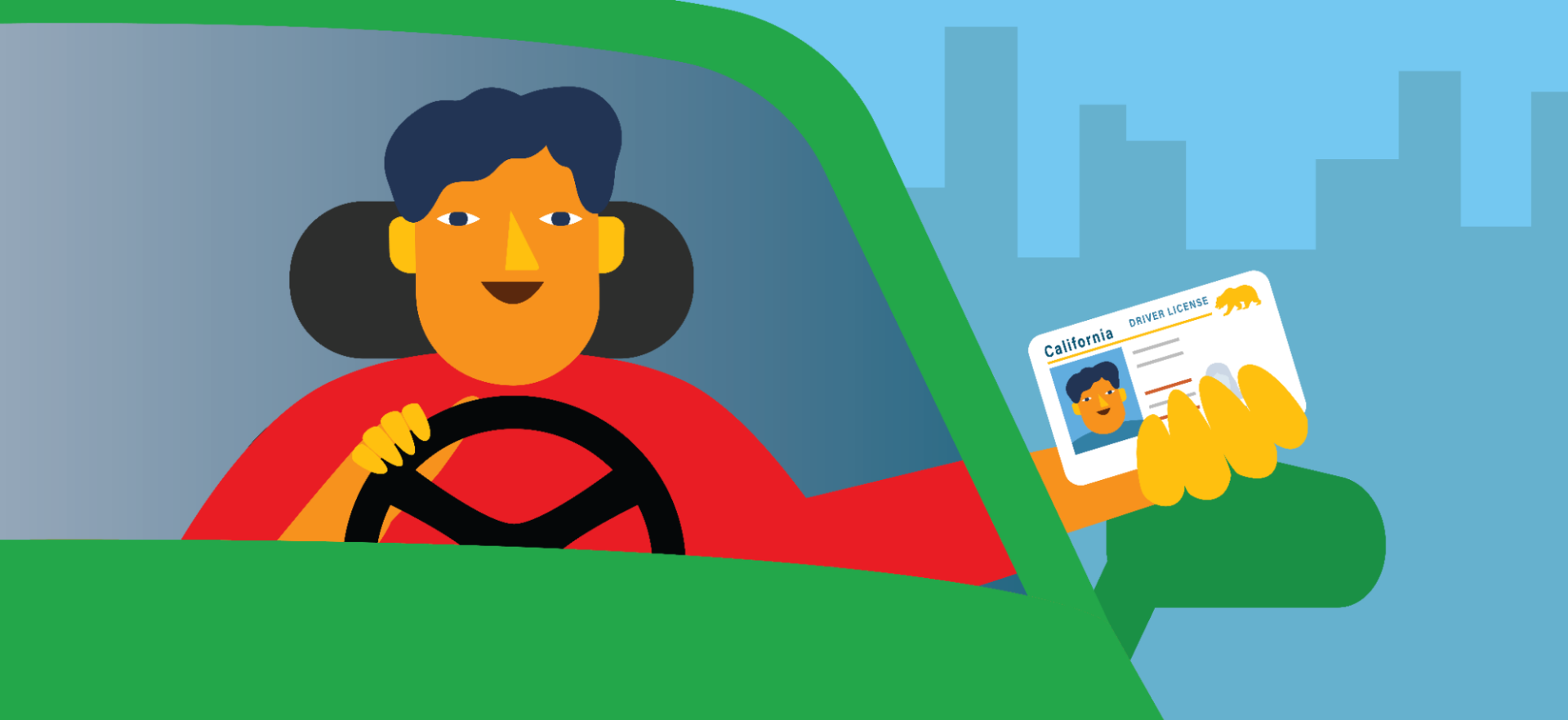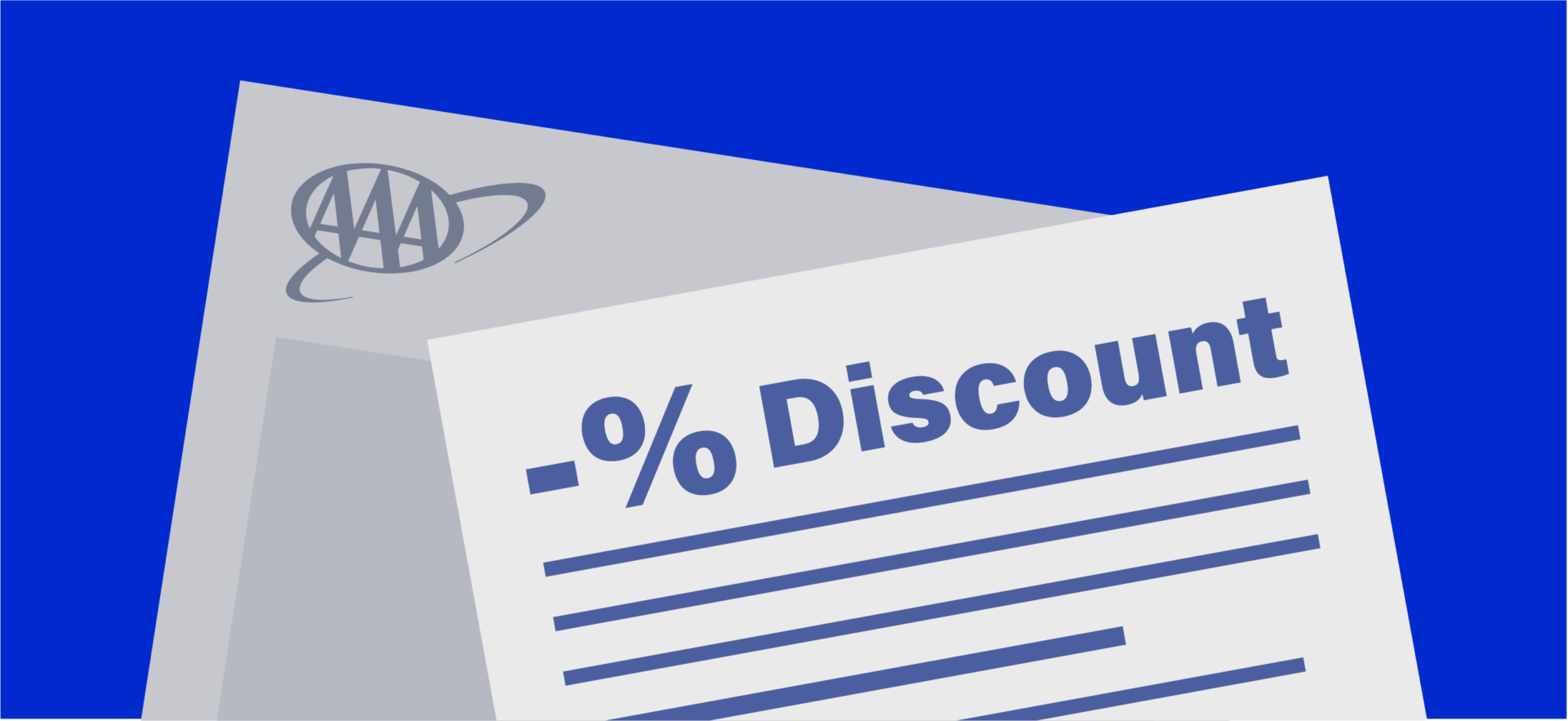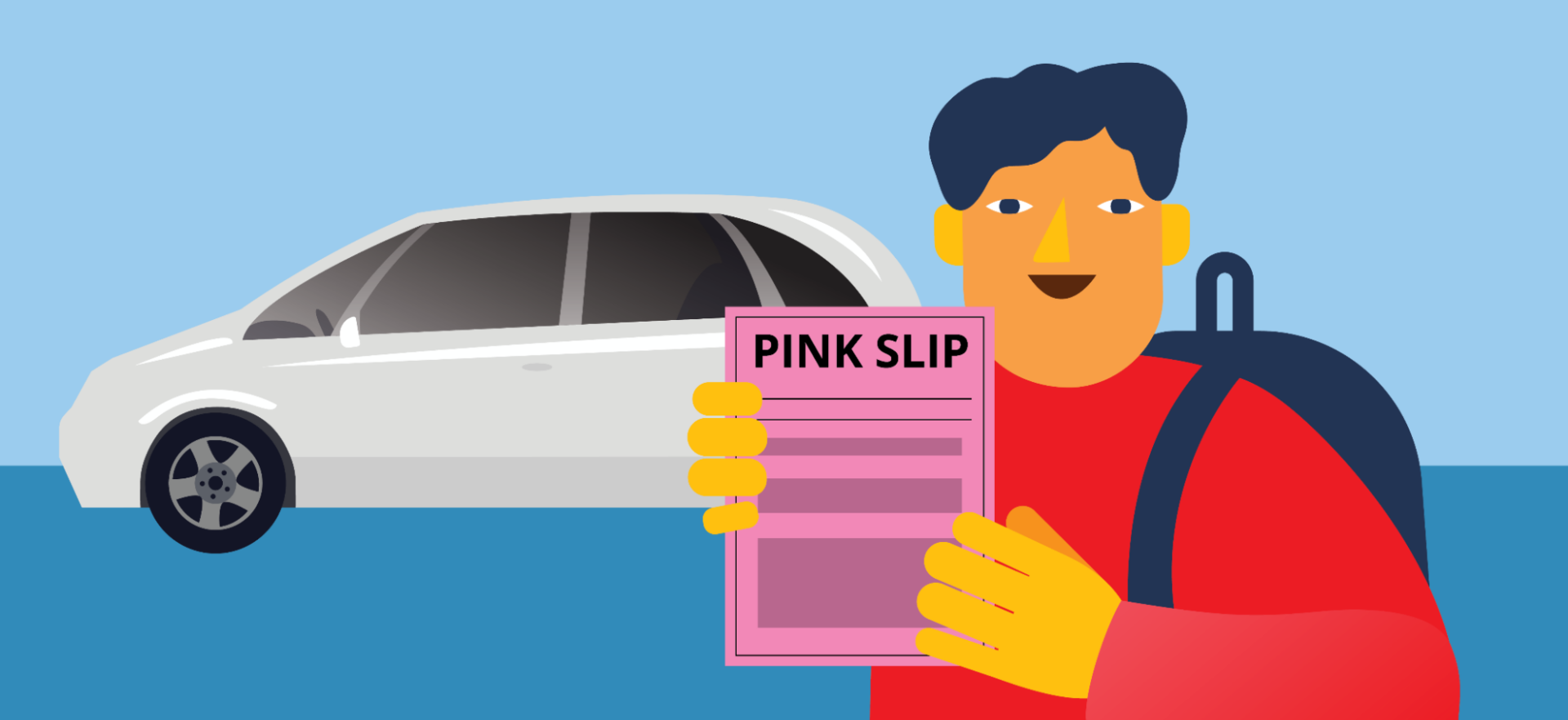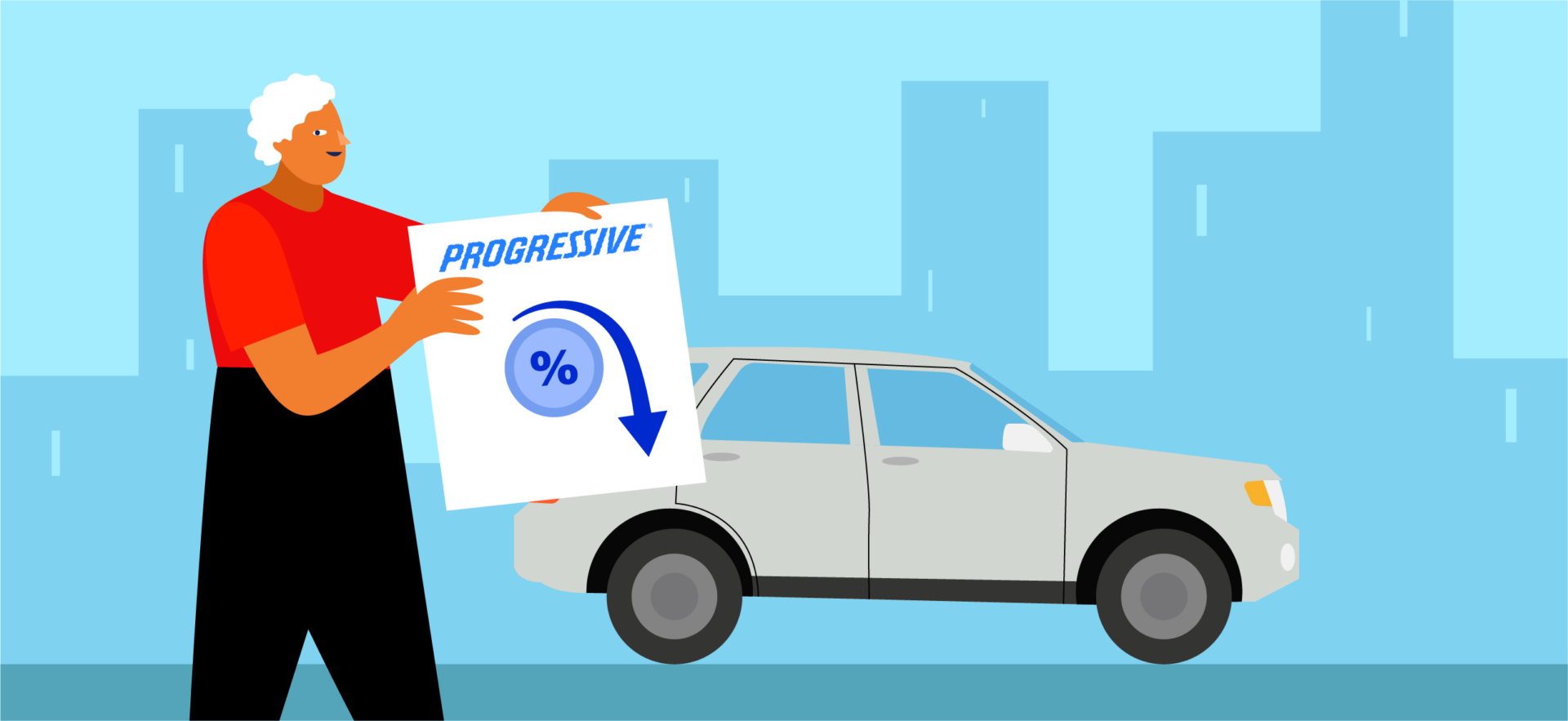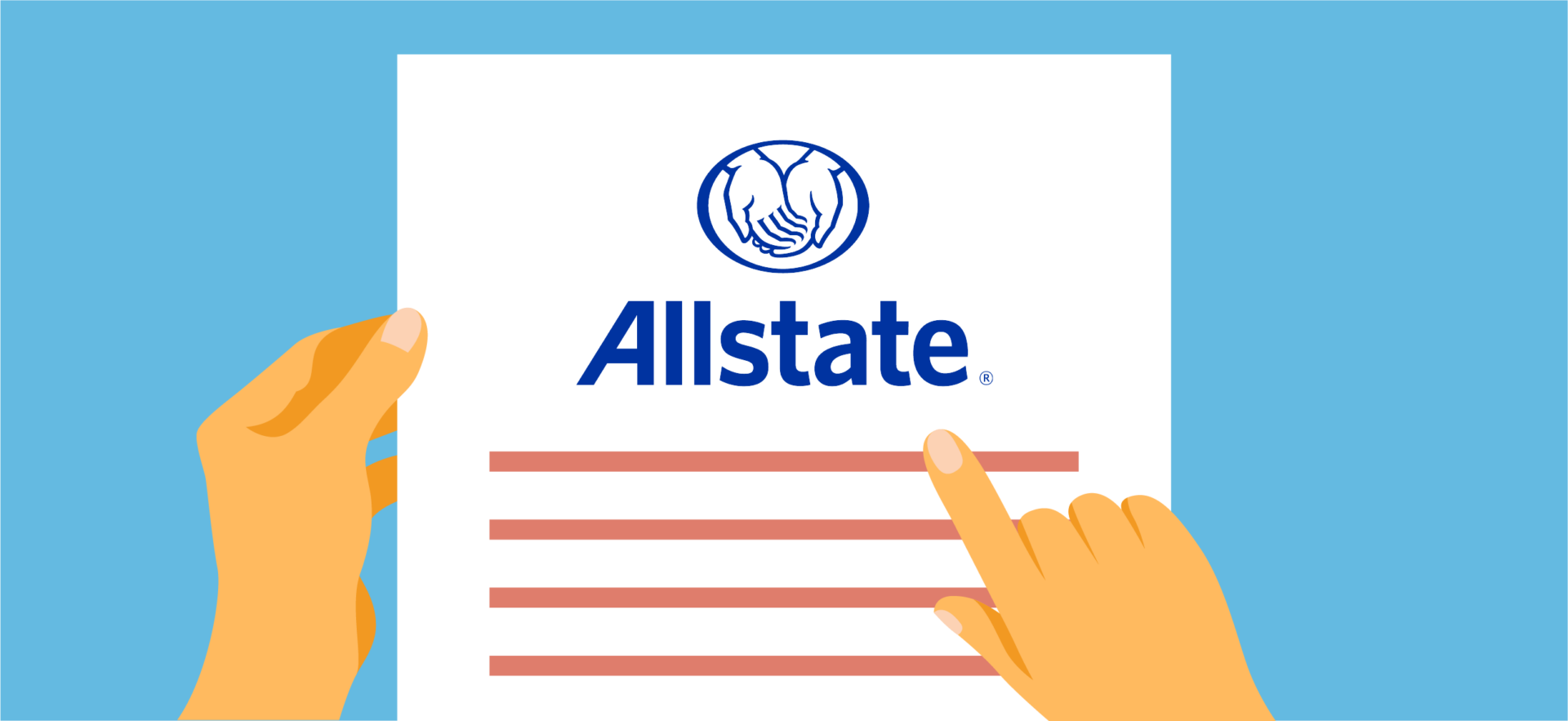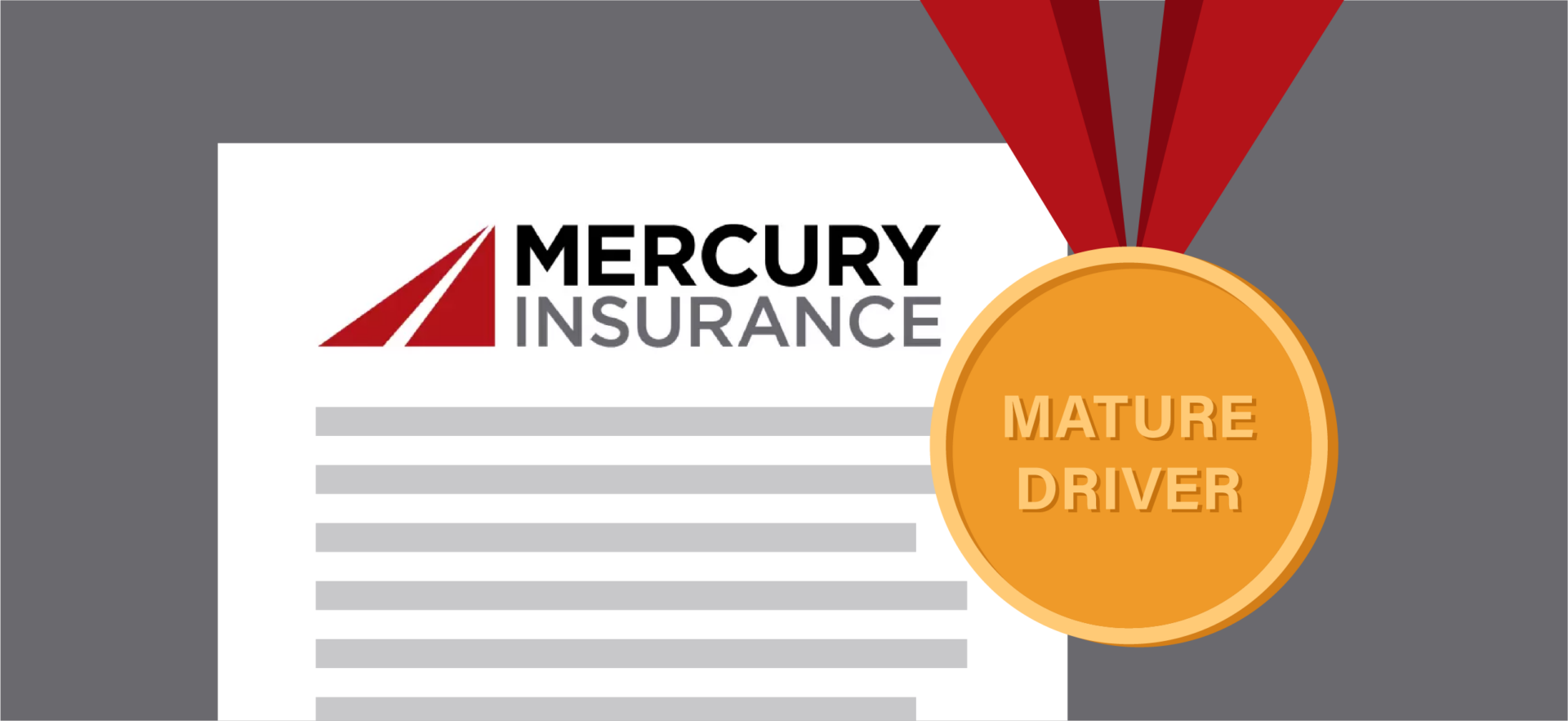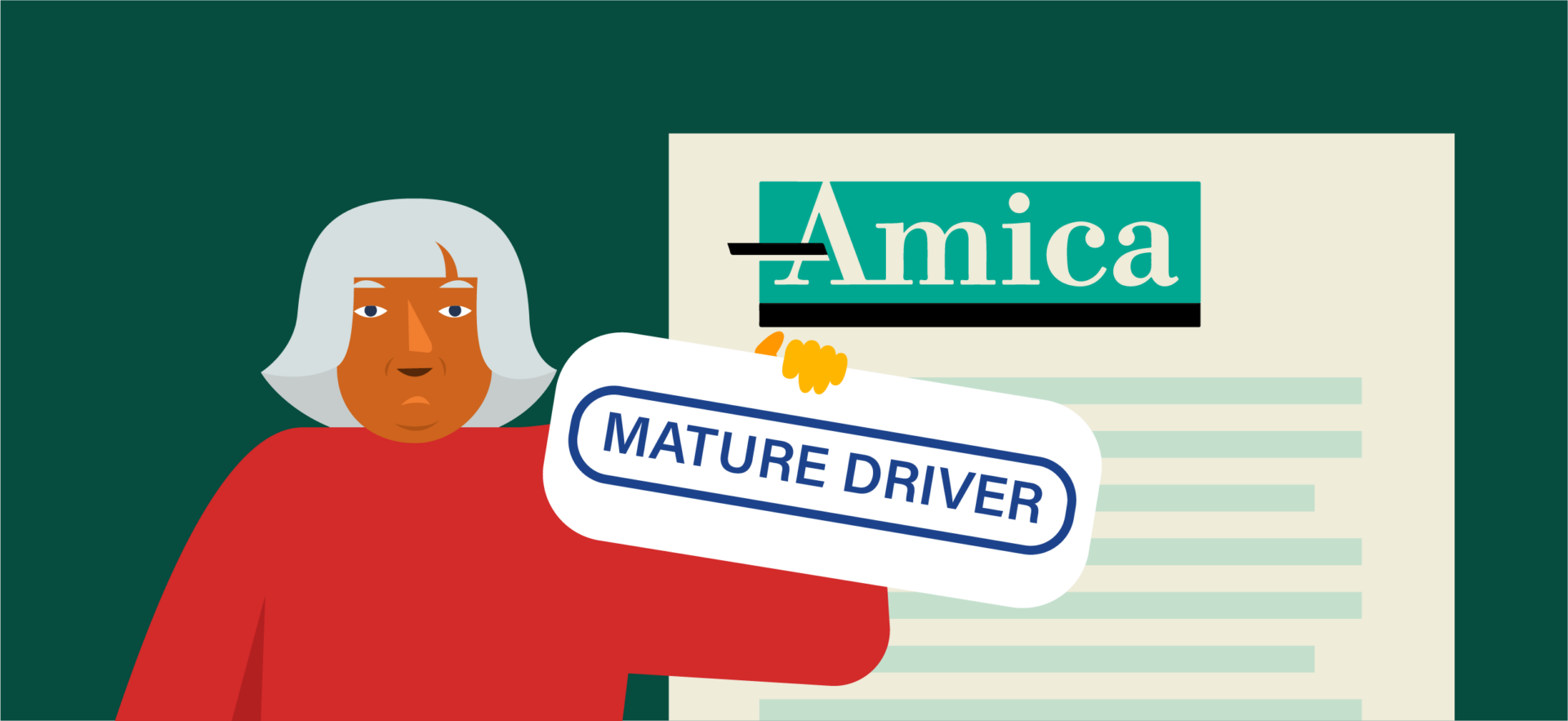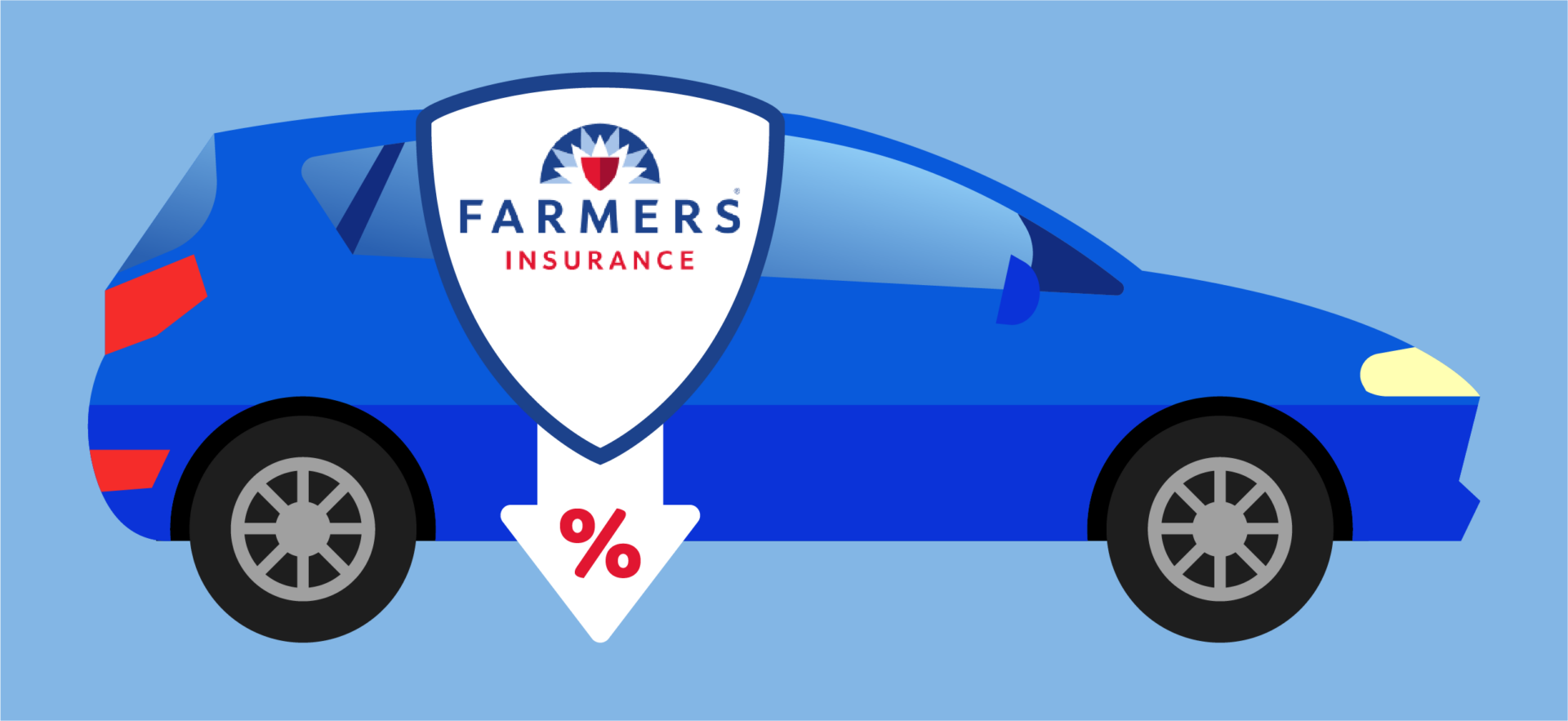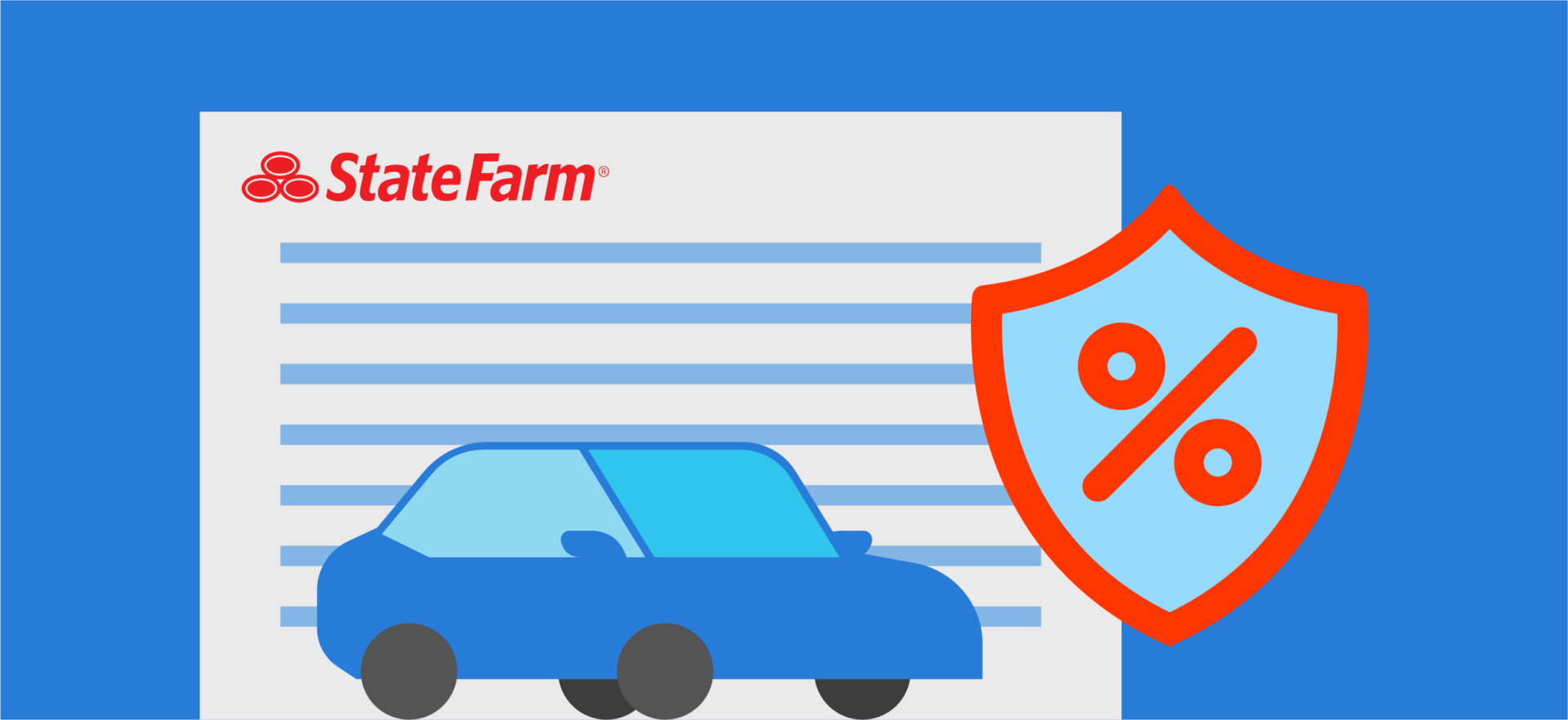Nevada speeding fines start at $100 and can go up to $1,000, depending on how much you exceed the speed limit. This traffic offense also carries demerit points and can lead to license suspension.
Fortunately, there are steps you can take to dismiss the charge, reduce the fine, or remove points from your driving record. Keep reading for more information on speeding fines in Nevada and how to handle your ticket.
Nevada Speeding Fines: How Much Are They?
In Nevada, the fines for speeding vary by city and county but cannot exceed $20 per mile over the limit. One exception is the City of Las Vegas, which applies a set fine amount for specific speed ranges.
Here’s a quick breakdown of the penalties for speeding on Nevada’s roadways:
| Speed Over the Limit | Maximum Fine | Demerit Points | Additional Consequences |
|---|---|---|---|
| 1–10 mph | $200 | 1 |
|
| 11–20 mph | $400 | 2 |
|
| 21–30 mph | $600 | 3 |
|
| 31–40 mph | $1,000 | 4 |
|
| 41+ mph | $1,000 | 5 |
|
A few other things to know:
- Fines are doubled in work zones, school zones, and pedestrian safety zones.
- Driving 30+ mph over the limit is a misdemeanor, punishable by:
- Up to $1,000 in fines
- And/or up to 6 months in county jail
- If speeding causes bodily injury or property damage, you may owe up to $1,000 in civil penalties.
- Speeding tickets can lead to license suspension. If you accumulate 12 or more points in 12 months, that’s a six-month suspension under Nevada law.
When you’re eligible, the court may allow you to attend traffic school to keep points off your record and avoid license suspension. The alternative is to pay a point reduction fee, but not all courts offer this option. (If you’re interested, read more about how Nevada traffic school works.)
Penalties for Speeding in Rural Areas
The laws are more lenient for Nevadans who drive too fast in rural areas. If you exceed the speed limit by no more than 5-10 mph, you’ll be charged with a non-moving violation, meaning you won’t get demerit points.
Per Nevada law, speeding in rural areas during daylight hours is a non-moving violation punishable by a $25 fine under the following conditions:
| Speed Limit | Your maximum speed | Fine |
|---|---|---|
| 60 mph | 70 mph | $25 |
| 65 mph | 75 mph | $25 |
| 70 mph | 75 mph | $25 |
| 75 mph | 80 mph | $25 |
| 80 mph | 85 mph | $25 |
But, as mentioned earlier, you’ll have to pay up to $1,000 if you cause injuries or property damage to others while speeding.
Also, the above regulations don’t apply if you exceed the speed limit in a county with 100,000 or more residents and the road is in an urban area or next to a city and has strict speed limits. An example is Clark County, which meets both of these criteria.
Speeding Fines and Your Insurance Rate
According to NerdWallet, Nevada drivers pay around 17% more on car insurance after a speeding ticket. That’s an extra $628 annually if you currently pay $3,686 per year for full coverage.
Depending on your insurance provider, you could end up paying up to 35% more for three consecutive years. The points you get for speeding will fall off your record after 12 months, but the conviction remains part of your driving history. Most insurers look back three years for traffic tickets, during which they’ll charge you higher rates.
The only way to lower your premiums is to apply for discounts or switch carriers. For instance, some insurance companies will reduce your rates if you voluntarily complete Nevada traffic school. Ask your insurer about this option before choosing a course.
What to Do When You Get a Speeding Ticket in Nevada
Depending on your circumstances, there are four ways to deal with a speeding ticket in Nevada. You may contest the charge, pay the fine, attend traffic school, or request a fine reduction.
Let’s discuss these options and what they entail.
Pay the Fine
One solution is to pay the fine in full online, in person, or by mail. Depending on the court, you‘ll have up to 90 days to make the payment or take a different course of action, such as contesting the ticket.
If you can’t pay on time, contact the court before the due date on your citation. Some courts may offer a one-time 30-day extension, a payment plan, or the option to do community service instead of paying the fine.
Ignoring the ticket is unlikely to result in a bench warrant unless you’ve been charged with a misdemeanor (e.g., speeding 30+ mph over the limit). However, the court may suspend your driver’s license.
Attend Traffic School
A second option is to plead guilty or no contest, pay the ticket, and request traffic school. Upon course completion, the court will remove three points from your record.
Traffic school takes five or eight hours, depending on the number of traffic offenses you’ve been charged with over the past 12 months. You can complete the course online, in person, or by correspondence after getting the court’s permission.
First, make sure you meet the Nevada traffic school eligibility criteria. To qualify, you must hold a non-commercial driver’s license, have three to 11 points on your driving record, and meet the following requirements:
- You haven’t taken traffic school for point reduction in the past year.
- You were charged with an infraction punishable by no more than four demerit points (e.g., speeding 25 mph over the limit).
- You didn’t commit the offense in a school zone.
- You were not involved in a collision.
- You take the course voluntarily and not as part of a plea bargain.
If you qualify for traffic school, you should find this information on your ticket. Call or visit the court to confirm your eligibility, pay the fine, and choose a course provider approved by the Nevada DMV.
Our Nevada traffic school is licensed by the DMV and accepted by all courts. Once you’re enrolled, you can study online from any device and finish in as little as five hours.

The course format varies from school to school. At Traffic Safety Institute, students must complete several modules followed by quizzes. Each lesson covers a specific topic, such as defensive driving, state traffic laws, or accident prevention. When you’re done, you must take and pass a final exam to receive your certificate of completion. Submit this document to the court and DMV to keep points off your record.
Read: How Long Is Online Traffic School in Nevada?
Request a Fine Reduction
If you’re a first-time offender or have a clean driving record, the judge may agree to reduce your fine.
Some courts also provide alternative options, such as community service. An example is the Nye County Court, which allows defendants to pay the fine in installments or do community work with a non-profit organization at a rate of $10 per hour.
Call or visit the court to request more information. Ask if you may have your fine reduced – and what steps you need to take. Note that this option will not remove points from your license.
Contest the Ticket
Another option is to plead not guilty and fight the ticket in court to have it dismissed. Follow the steps below:
- Request a hearing: Submit your plea by mail or in person and contact the court to request a hearing. Depending on the court’s policies, the request may be made online, in person, or over the phone.
- Gather evidence: Collect GPS data, dashcam footage, witness statements, photos of unclear signage, or other evidence supporting your case. For example, radar gun calibration records could help you prove that the officer used an improperly calibrated device to measure your speed.
- Present your case: Go to court and present your defense along with any relevant evidence. If you don’t feel comfortable speaking in front of a judge, you may hire a lawyer to represent you. A traffic attorney can guide you every step of the way, from reviewing the ticket for technical errors to negotiating the charges.
- Wait for the court’s decision: If you win, the court will dismiss the charges against you. This means no points will go on your record, and you won’t have to pay the fine. If you lose, you must pay the ticket and do what the court says, such as doing community service or going to traffic school.
Contest the ticket only if you have a strong case. For example, claiming that you broke the law because there was no posted speed limit is not a viable defense. As a licensed driver, you’re supposed to know the speed limits in Nevada.
Our advice is to consult a traffic attorney before proceeding to court. They will review your case, gather evidence, and suggest possible defenses. However, if you get a minor speeding ticket, it’s easier and cheaper to attend traffic school. (Learn more about how much Nevada traffic school costs.)
Read: Nevada Speeding Ticket Dismissal: 3 Options
Complete Traffic School with Traffic Safety Institute
Our DMV-approved school offers the fastest traffic safety course allowed by law. You can complete it in one sitting in just five hours or study over several sessions.
Our students can access the course from any device, including smartphones, and go through each module as many times as they need to. They also get extra perks like:
✅ Free audio read-along
✅ Save-and-resume feature
✅ Open-book final exam
✅ Unlimited test retakes
✅ 24/7 support via live chat
✅ Instant electronic certificate
✅ DMV reporting within 30 days
These services are covered by our flat fee of only $19.99, which you’ll pay after you pass the final exam. You can sign up and take the course for free without even entering your credit card information.
Our commitment to quality learning has earned us thousands of positive reviews. Through our courses, we help drivers like you stay safe on the road, maintain a clean driving record, and qualify for insurance discounts.
Don’t let a speeding ticket add points to your license. Start traffic safety school for FREE today.
FAQs about Speeding Fines in Nevada
Looking for more information on speeding fines in Nevada? Below are a couple of questions we get all the time:
Is Nevada strict on the speed limit?
Nevada is strict on speed limits, especially in school zones, work zones, and pedestrian safety areas. Going just a few miles over the posted limit can result in fines and demerit points.
How fast can you go over the speed limit in Nevada?
Exceeding the speed limit by just one mile per hour can add one point to your record. However, you’re unlikely to get pulled over for going just a few miles per hour beyond the limit.
Is going over 100 mph a felony in Nevada?
No, it is not, unless you cause an accident resulting in bodily injury or death. If you’re caught driving 100 mph over the posted speed limit, you’ll be charged with a misdemeanor.
At what point does speeding become reckless driving in Nevada?
Speeding is considered reckless driving when you go well over the speed limit with deliberate disregard for other people’s safety or property.
For example, exceeding the speed limit by 50 miles per hour would most likely result in a reckless driving charge. The same goes for unauthorized speed contests, or drag racing.
Whether or not you can be charged with reckless driving also depends on how you behave while speeding. If, say, you’re caught speeding at 30 mph while running through red lights, your behavior will likely be considered reckless.
